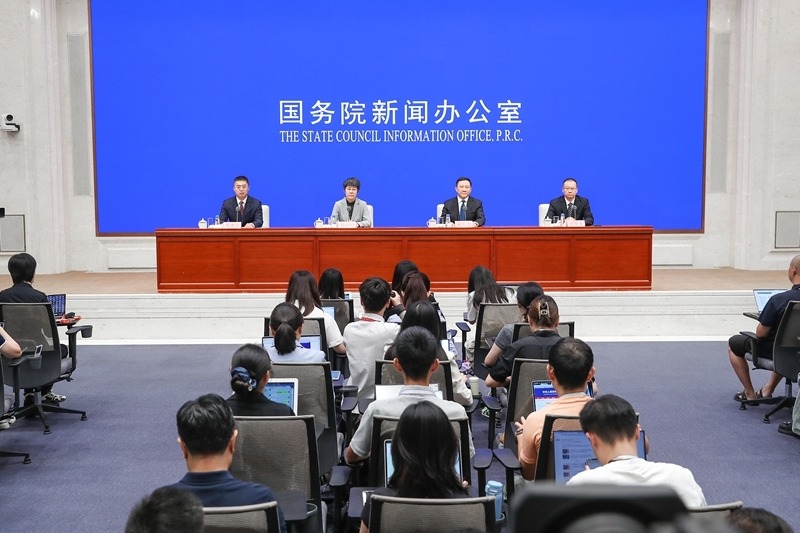SPP pledges to protect online identities, privacy

The Supreme People's Procuratorate has pledged to improve the framework for protecting people's identity and privacy rights in cyberspace and cracking down on their criminal infringement.
Many cases involving the infringement of such rights, known as personality rights, originate from small issues, but concern people's vital interests and the public's feelings about safety, fairness and justice, Li Xuehui, a spokesman for the top procuratorate, said at a news conference on Monday.
Procuratorial organs will continue to strengthen the judicial protection of personality rights, and more attention will be paid to online infringements of privacy, Li said.
China has been improving legal protection for material rights such as the rights to life, body and health, and spiritual rights including the rights to reputation, honor and privacy, said Miao Shengming, head of the SPP's first procuratorial office, adding that demand for the protection of people's spiritual rights has increased in the internet era.
Internet technologies are being used by criminals to willfully defame the reputation of others and pry into and spread their private information, causing negative impacts to victims, their families and society, Miao said.
"In some libel cases, the person being defamed doesn't even know the perpetrator," he said.
"They were strangers, which means any one of us is vulnerable to this.
"The public has an increasing demand for protection of their personal rights and personal dignity."
Since 2019, procuratorial organs around the country have approved the arrest of 168 people suspected of the crimes of insulting and libel, 12,410 people suspected of infringing on people's personal information, and 12 people suspected of infringing on the honor of heroes and martyrs.
They also prosecuted 213 people for the crimes of insulting and libel, 21,923 people for infringing on others' personal information, and 15 people for infringing on the honor of heroes and martyrs.
Chinese law stipulates that insults resulting in serious humiliation constitute a crime.
The infringement of personality rights in cyberspace has common features and often occurs in response to news reports, such as in cases infringing on the reputation and honor of heroes and martyrs soon after the release of reports about their actions. As a hot social issue cools off, the number of related cases decreases, but new ones may emerge along with the next hot issue, Miao said.
In one case, on Feb 19 last year, Qiu Ziming, a micro-blogger using the online name labixiaoqiu who had over 2.5 million followers on Sina Weibo, sought to attract netizens' attention with two posts defaming military heroes and martyrs in the border clash with Indian troops in 2020 and distorting their heroic deeds.
Although he removed the posts that afternoon, over 200,000 people had read, relayed or commented on them.
The posts triggered public outrage and Qiu was sentenced to eight months' imprisonment for slandering martyrs and heroes in May.
He was also ordered to publicly apologize on major websites and in national media.
Miao said online insults, libel and infringing on the privacy of people's personal information are prominent breaches of personality rights. Such cases often spread fast in different groups, causing uncontrollable consequences. Some topics can be read by millions of people in a matter of hours, resulting in extremely bad social impacts, he said.
"The costs faced by victims in defending their rights against online defamation are high, and they have a hard time protecting their rights themselves because they face difficulties in collecting, providing and proving the evidence when launching private prosecutions," Miao said.
The Civil Code and the Personal Information Protection Law, both implemented last year, have provided sound legal support for such cases, he said.
The SPP, the Supreme People's Court and the Ministry of Public Security are working to draft guidelines for procedures in the transfer of cases from private prosecution to public prosecution to improve the handling of personality rights infringement cases.





































